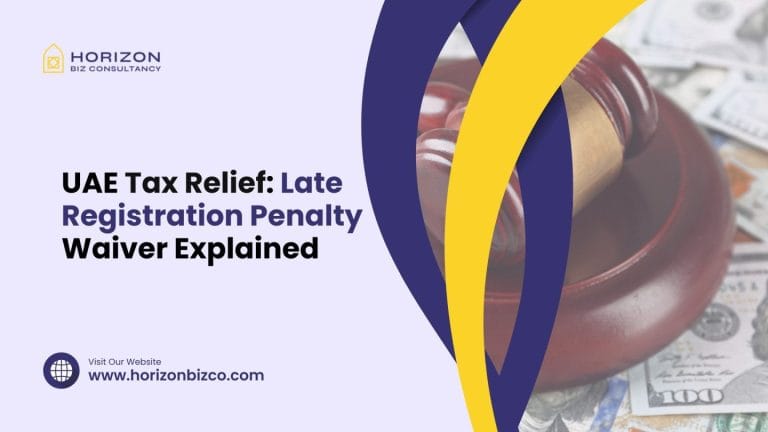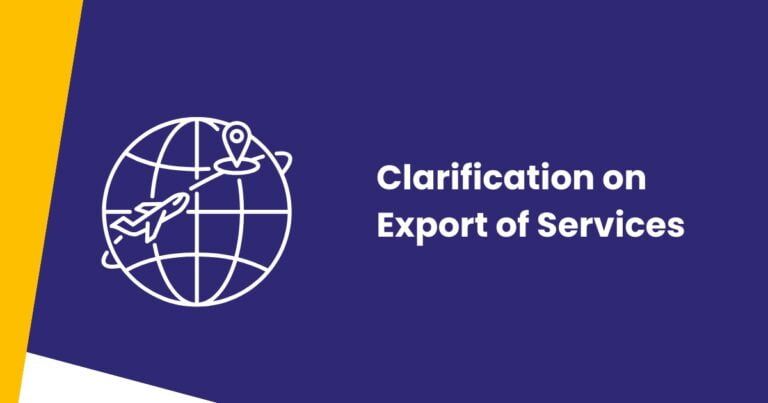However, many companies missed the original deadline to register. This meant they faced steep fines for late registration expected to be AED 10,000.
To ease this compliance burden, the government has now launched a one-time penalty waiver for late corporate tax registrants. This initiative grants struggling companies the temporary opportunity to comply with requirements and avoid fines.
Who Can Benefit from This Registration Penalty Waiver?
The corporate tax late registration penalty exemption applies to a wide range of companies, including:
- Limited Liability Companies (LLCs)
- Private shareholding companies
- Public and private joint stock companies
- Civil companies and organizations
- Partnerships
- Branch offices and permanent establishments
Additionally, certain categories of exempt persons specified in the legislation can also qualify for the waiver. For example, charities and public benefit organizations meeting set criteria are eligible.
Free Zone entities carrying out activities inside UAE borders may also qualify depending on profit thresholds and economic substance compliance. For instance, if an Abu Dhabi Global Market (ADGM) organization has taxable income linked to local UAE business, the waiver can apply.
Therefore, apart from natural persons, the waiver allows most entities holding a valid UAE trade license or commercial registration to avoid late registration penalties.
Step-By-Step Guide to Using the Penalty Waiver Correctly
- Confirm your organization’s annual profits exceed the AED 375,000 threshold for corporate tax in the UAE. If profits are below this level, you may not need to register. While the AED 375,000 threshold determines taxability, registration obligations may still exist even if profits are below this threshold. Certain entities, even if they anticipate profits below the threshold, might still be required to register. It’s essential to consult the official regulations to determine the exact registration requirements.
- Gather all documentation showing your legal tax status including trade licenses, ownership papers, Memorandum of Association (MOA), financial statements, etc.
- Access the Federal Tax Authority’s (FTA) electronic tax administration system (eTaxis) using your existing Tax Registration Number (TRN). If new, create an eTaxis account to register for corporate tax.
- Accurately file your entity’s first period tax return including all relevant income, cost deductions, and exemption confirmations before the new deadline.
- Carefully verify all registration and tax return details submitted to the FTA to avoid errors that risk further penalties and comply fully.
The Federal Tax Authority (FTA) has specified different deadlines based on when the financial year ends. While the filing deadline for the tax return is generally 9 months after the end of the financial year, the registration deadline for companies with a financial year starting between January 1st and June 30th, 2024, was May 15th, 2024. For those with a financial year starting between July 1st and December 31st, 2024, the registration deadline was November 30th, 2024.
The waiver provides an extension to register without penalties, but it’s crucial to refer to the official FTA announcements for the exact extended deadlines, which are not a uniform 7 months after the financial year-end for registration.
The Strategic Aims Behind This Penalty Relief Initiative
Introducing this temporary corporate tax penalty waiver aligns with the UAE government’s aim to strategically support businesses getting to grips with tax compliance obligations according to global best practices and standards.
Specifically, the key objectives behind granting this one-time amnesty are to:
- Encourage voluntary disclosure of tax liability by businesses still struggling with unfamiliar registration and filing rules. Rather than applying harsh fines immediately, it allows entities extra time to comply and self-correct oversights.
- Prevent punishments from disproportionately affecting smaller companies or startups with limited familiarity navigating the new tax environment. This prevents tax obligations from directly harming enterprise growth.
- Signal the UAE’s ongoing commitment to enabling businesses to operate successfully. Forgoing penalties temporarily eases financial burdens during the corporate tax transition phase.
- Promote a sustainable culture of corporate transparency and tax participation going forward. Companies voluntarily complying now are better positioned for smooth long-term operations.
Risks of Failing to Meet This One-Time Waiver Deadline
Unfortunately, the late registration penalty exemption opportunity does not apply indefinitely. Failing to successfully register and file first period returns within 7 months after your fiscal year-end risks significant consequences. The 7-month timeframe is more directly related to the extended period to register without incurring the penalty. The filing deadline remains separate (9 months after the financial year-end). :
- The full AED 10,000 administrative monetary penalty for late tax registration automatically applies.
- Additional penalties may accumulate each subsequent month if ongoing non-compliance continues.
- In worst cases, tax evasion proceedings can be initiated for willful negligence by entities. This may entail lengthy litigation negatively impacting finances and reputation.
Getting Expert Support to Avoid Disruption
Adapting to the modernized UAE corporate tax environment undoubtedly requires significant upskilling and resources for many operators. However, both Federal Tax Authority officials and regulators aim to ultimately enable otherwise viable companies to comply.
The tax penalty waiver is a key part of this supportive transition plan for struggling business taxpayers. Other assistance tools include the Tax Clinic program to facilitate consultation sessions on common issues.
However, given missed deadlines risk steep fines and disruptions, urgent expert guidance is highly recommended for most businesses. Corporate tax and compliance specialists extend timely, personalized assistance. This helps concerned companies accurately meet waiver conditions, restore compliance, and continue smooth enterprise operations.
Conclusion
In summary, the UAE’s corporate tax penalty waiver offers major relief from potentially company-threatening late registration fines as authorities balance collection obligations with strategic support.
Still, continued success in the modernizing local tax landscape makes proactive management indispensable. Entities must take concerted steps to integrate capable in-house tax teams or engage qualified specialists to meet emerging compliance standards.
Overall, timely and accurate tax calculation, payments, reporting, and optimization is now compulsory. Plan accordingly to leverage this unprecedented amnesty opportunity. Partner experienced advisors to strengthen governance and unlock every permissible advantage from ongoing reforms. Checking the official FTA announcements for the precise deadlines related to the penalty waiver is also always recommended.
Frequently Asked Questions
A. Most legal entities holding a valid UAE trade license fall within the scope of eligibility for the waiver including limited liability companies, sole proprietors, partnerships, free zone companies with taxable income and specified exempt organizations.
A. So the precise deadline depends on your operating year cycle. The waiver is for late registration penalties, not for late filing penalties. It’s crucial to refer to the official FTA announcements for these specific extended registration deadlines.
A. Missing the extended 7-month time window to file results in the standard AED 10,000 late registration fine with further monthly penalties possible for ongoing default in addition to potential tax offense proceedings.
A. Engaging an experienced corporate tax and compliance specialist like those available through reputable advisory firms is highly advisable for personalized, timely assistance tailored to your operating circumstances. This helps assure error-free submission and accountability.





